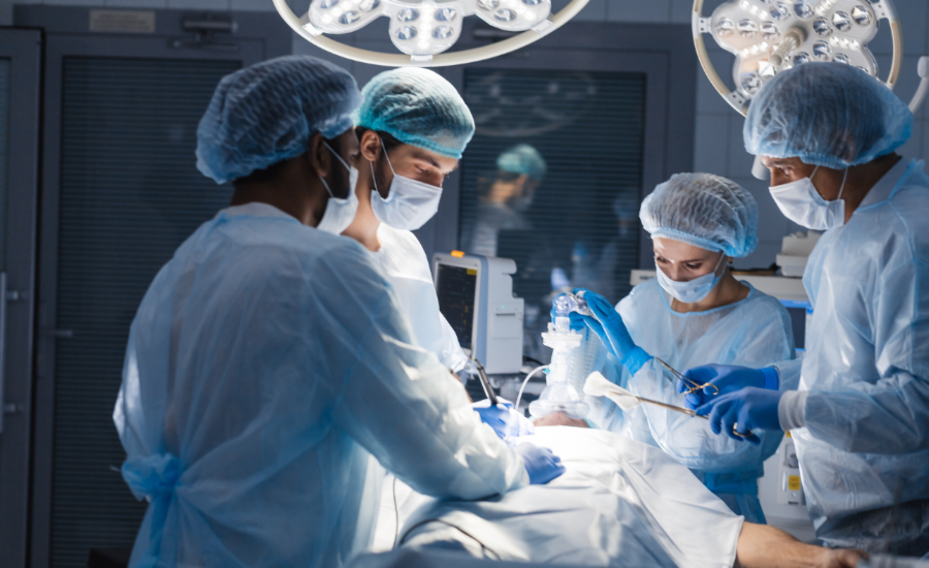Advice Before Surgery with Diabetes
It’s perfectly possible that a person with diabetes can undergo a necessary surgical operation to improve their health and that the surgery goes completely safe, without complications. Good glucose control before, during and after the surgery positively impacts recovery.
We can classify surgeries as two different types:
Minor surgery
Local anesthesia is usually used and recovery time after surgery is short. It doesn’t usually require hospitalization, so the patient returns home the same day of the surgery.
Major surgery
It’s usually performed under general anesthesia, so it requires hospitalization of the patient and recovery is longer.
In both cases, it’s a good idea to plan, together with the healthcare team that treats diabetes, for the periods before, during and after surgery. Planning will help reduce the natural stress caused by surgery.
It’s usually normal to relax glucose control goals in order to avoid hypoglycemia. Generally, a good glycemic target is usually 100-180 mg / dl. Although, this figure should always be approved by healthcare professionals according to each particular case.
With proper planning, the patient should know if he should modify the basal insulin sections on the same day of the surgery. This includes modifications to the temporary baseline that allows the insulin pump to work. This planning allows them to prepare for the requirements on the day of the surgery.
It’s normal to reduce the baseline percentage on the day of the surgery.
Long-acting insulins are often difficult to control during minor surgeries, so an insulin pump that uses ultrafast insulin can be a good tool to adapt the insulin pattern to for the duration of the surgery.
The patient and his healthcare team specializing in diabetes must also agree what to do on the day of the surgery if glucose levels are high or low. This, once again, affects the certainty a patient feels if faced with an unpleasant situation and gives him tools so that everything goes as smoothly as possible.
The integrated insulin pump and continuous glucose sensor systems can be great allies during minor surgeries. If healthcare professionals and the patient agree - and the surgical procedure allows it - they can control glucose levels very well throughout the entire process. The reliability of a continuous glucose meter allows for glucose monitoring in an integrative way. The predictive arrows are especially useful to anticipate and solve problematic situations.
Prior to the surgery, we would also want to address these issues with the surgeon in charge of the surgery and the anesthesiologist. It’s important that they are knowledgeable about diabetes; they may not be specialists, but they will depend on the patient's glucose levels, especially during major surgeries.
Some questions to plan on asking could be:
- Who will manage my diabetes during my hospital stay? Who should I inform if my levels are low or high on the day of the operation? Or if I have ingested any food that may affect my glucose levels?
In major surgery operations, it’s possible to be hospitalized for a few days, so it will be necessary to anticipate how insulin will be handled not only in the operating room, but also in the recovery room.
-Will I be able to wear my insulin pump and my continuous meter during surgery?
Keep in mind that some surgeries include equipment that emits radiation, so the use of an insulin pump or sensor in the operating room would not be safe. In theory, if the sensor is not inserted in the area being operated on, and there is no danger of deterioration, there would be no reason not to wear the continuous glucose sensor.
- Who will manage my diabetes during the surgery?
During surgery, the anesthesiologist or surgeon may administer insulin or glucose as necessary to keep your blood glucose level within the acceptable range.
It is possible that, at medical discretion, therapy with an infusion system will be discontinued and regular insulin therapy may be chosen. It is important that the patient is aware of this fact and participates in the reasons for this decision, as well as the procedure to reintroduce insulin pump therapy.
Intensive glucose control is shown to benefit surgical recovery, in both the presence and absence of complications.
In general, the best recommendation in these cases is for the healthcare professionals and patients to work together and plan for all situations that could possibly occur.
- Guidelines for Perioperative Management of the Diabetic Patient: https://www.ncbi.nlm.nih.gov/pmc/articles/PMC4452499/
The content of this article is for informational use and is not in any case should it replaces the consultation of the instructions for use of the device or the opinion, diagnosis or treatment prescribed by the doctor. Always consult with your doctor for diagnostic and treatment information and strictly follow your doctor's instructions. Medtronic cannot be held responsible in any way for any damage caused, or presumably caused, directly or indirectly, by the information contained in this article.
